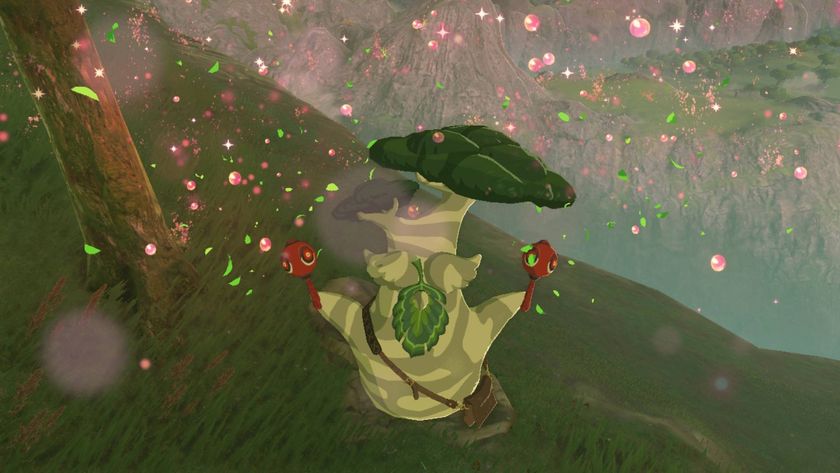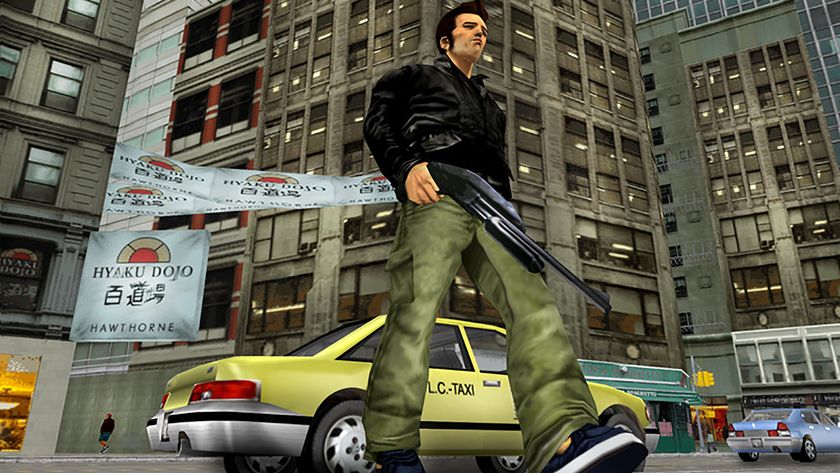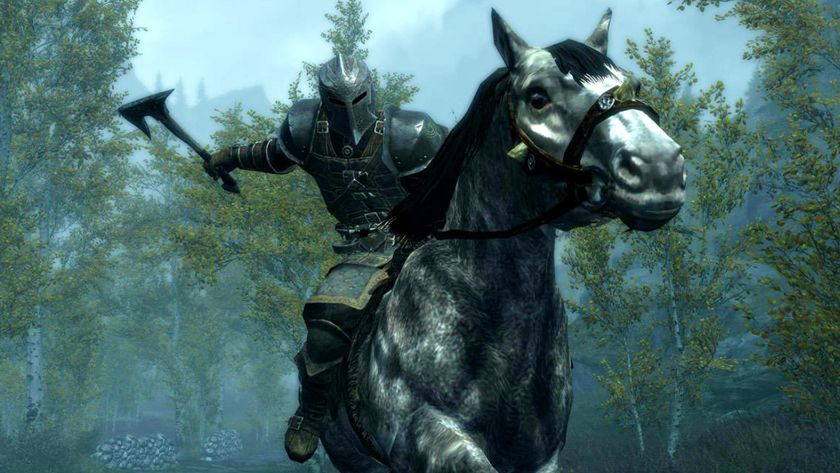Five years on, what has the Wii's revolution REALLY changed?
In 2006, it was going to change gaming and gamers forever, and turn Nintendo around. Did it?
A revolution in Nintendo's fortunes
So this is a biggie. After 15 years of being pushed to the fringes of the industry it saved and rebuilt, Nintendo is pimp-daddy-king-boss of the Video Game County once again. And that, however you feel about the Wii, is a good thing. A few years ago it looked like the most creative and inventive platform holder in the industry might be pushed under the cold, cold waves of the software-only seas, where it would no doubt be greeted with a churlish “Not so clever now” scowl by a damp, soggy Sega. Thanks to the mammoth success of the Wii though, that hasn’t happened. In fact Nintendo is rolling in the dollar-pounds.
But while Nintendo still exists as a hardware company, it’s debatable as to whether it really survived.
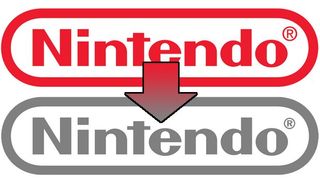
Above: A simple logo change, but a significant and sad one
Companies need to adapt in order to continue. That’s a given. And in a technology and lifestyle-driven industry like games, it’s an all the more pressing need. But rarely has a games company made such a rapid and drastic about-face as Nintendo did in 2006. In fact as survival plans go it was akin to gaining pig-tailed hair, putting on make-up and changing one’s name to Susie in order to avoid being shivved in prison.
Out went the bright, witty, whimsical sense of fun, in came the bland, sterile, non-specific, vaguely aspirational products and marketing, seemingly aimed at no particular aspiration whatsoever so as to make doubly sure not to offend anyone. Nintendo did well out of it, but did anyone else, really? And has the big N’s triumphant return really set it up for secure, long-terms health? I’m not so sure.
You see Nintendo is now in one hell of a predicament. Having so successfully manipulated the casual fad market to make around twelvety billion dollars out of Wii hardware sales, it has realised, as it had to, that the casual, easily-pleased nature which sent the “expanded audience” its way in the first place is also the most dangerous part of the equation. Excitable techno-magpies will always flock to the newest exciting bit of kit with a ravenous hunger, but that’s exactly the problem. With no real brand or activity investment, or serious passion for media, they get bored really quickly and move on to the next shiny new toy just as soon as they’re told they should want it.
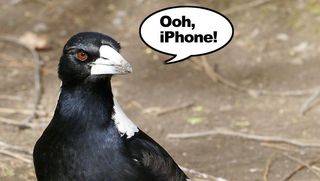
Nintendo’s response? Bail the hell out before the audience does a bail of its own. With Microsoft and Sony belatedly jumping on the motion-control bandwagon in 2010, market-saturation was imminent anyway, and so Nintendo’s E3 press conference that year was understandably about a return to the core. We had a whole load of core games, a core new handheld in the shape of the 3DS, and a whole lot more money in Nintendo’s pockets to fund them all. Good times, right?
Sign up to the 12DOVE Newsletter
Weekly digests, tales from the communities you love, and more
Well no, not necessarily. Nintendo also now has a hell of a lot of wrinkly laundry to iron out, and each and every one of those wrinkles is a side-effect of its success with the Wii. Winning back the disenfranchised core after five years of Microsoft and Sony dominance is going to take some doing for starters, but at the same time Nintendo doesn’t totally want to leave the casuals behind. There’s still money there after all, particularly in the handheld market. It’s a delicate situation, and sadly one that the 3DS crystallises.
It’s a core-focused machine flailing to find an audience due to Nintendo’s reluctance to stop making crap adverts for your Gran. In fact until recently Nintendo didn’t seem to want to sell any of the machine’s hardcore credentials at all. But now Ninty has suddenly started back-pedalling the 3DS’ marketing, dropping Nintendogs and bringing in the dragon punches. And now the casuals are confused. Is this for them? Is it not for them at all? What is it anyway? A DSi with a 3D screen? A next-gen DS? And what does “next-gen” mean anyway, Elspeth? Oh these kids and their Hip Hop...
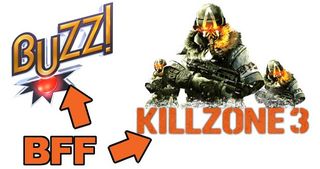
The fact is, providing for both markets is easy. Sony has been doing it since the PS2. But when you polarise yourself in one direction or the other for too long, maintaining that happy middle-ground is hard. Just ask Microsoft. And the Wii U could also suffer from the fallout of Nintendo’s casual market bait-and-switch. You see the problem with launching antiquated hardware alongside the PS3 and Xbox 360 was always going to be one of longevity. Where Microsoft and Sony’s machines still have the power to continue to impress and evolve for a few years yet, Nintendo has had to pull up short and launch a generation 1.5 machine, arguably somewhat too early, and certainly without having any idea what the competition is eventually going to pull out. Nintendo has shown its hand far too early, but it has had to.
And if the Wii U, Nintendo’s new “console for everyone” is rapidly superseded in the hardcore stakes, then it won’t be for everyone. It will just be for the casuals again. And those casuals are confused as hell about it right now. Even more confused than they are about the 3DS. Yes, Nintendo’s handheld business has always been strong, but if the 3DS’s problems of a confused, conflicting market continue (and let’s not even get into the threat from iOS and Android), it might find itself without its traditional safety net for the first time in decades.
And all of these problems, however dispirate, however potentially long or short-term, can be traced directly back to the Wii. Hmmm, maybe not such an unremitting win on this front then, after all.
And now here we go again with the Wii U, a machine with far more potential than the Wii, but also Why the Wii U is the perfect console and a total disaster. How will Nintendo weather this one? We shall see, friends, we shall see...
August 24, 2011

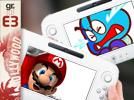
Why the Wii U is the perfect console and a total disaster
A GamesRadar Editor's schizophrenic inner turmoil, laid bare for your amusement

E3 2011: Why Microsoft's press conference showed that it may have much bigger problems than Kinect
Naive? Out of touch? Out of date?

